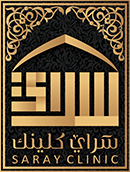Are you also suffering from Insomnia and looking for its treatments? Are you also unable to sleep at night and looking for the best insomnia treatment for yourself? Here is the article you’ve been looking for.
There are multiple treatment methods for Insomnia. These methods vary depending on the severity of Insomnia. We will cover all these treatment methods in detail for free good sleep hygiene and insomnia medications.
After finishing this read, you will be able to know all the treatment methods for Insomnia. You will know the most suitable method to start for yourself. Let’s start with the first and most important thing in dealing with Insomnia.
Sleep Hygiene
The first treatment method for Insomnia is practicing good sleep hygiene. You might suffer from it because of your bad sleeping habits. It is prescribed for people in the initial stages of Insomnia.
- Sleep Time: The first thing in good sleep hygiene is sleep time. Don’t just randomly sleep whenever you want. Set a fixed sleep time and follow it strictly.
- Sleep-Friendly Bedroom: The next thing is a sleep-friendly bedroom. Ensure you have a comfy bed pillow and a dark and quiet environment.
- Avoid Nicotine or Caffeine Intake: Avoid caffeinated beverages. It can make it difficult to sleep, while the nicotine may affect the quality of your sleep.
- Physical Activity: Perform physical activity during the day. It will make you sleep more quickly, but performing it near the time of sleep can bounce back and can make it even more difficult to sleep;
- Naps: Avoid naps in the evening.
- Diet: Eat or drink sleep-friendly food. Avoid heavy meals just before dinner.
- Water Usage: Only drink a little water when going to sleep.
- Screen Time: Limit your screen usage before sleeping and engage in a peaceful activity like reading a book.
Cognitive Behavioural Therapy (CBT-I)
CBT-I is the following treatment method after your sleep hygiene. It is a 1.5- to 2-month program that helps you sleep quickly and longer. There are five key components of this program. Let’s check them out;
Sleep Restriction: The first component is sleep restriction. Here, you restrict your extra bedtime except sleeping.
Stimulus Control: This component associates the bed and bedroom with sleep rather than wakefulness. Patients practice techniques like using the bed only for sleep and intimate activities, getting out of bed if unable to sleep, etc.
Cognitive Therapy: Cognitive therapy is the third component of this treatment. It prepares you mentally. It helps in keeping you stress-free from thoughts about sleep.
Sleep Hygiene: The 4th step is following good sleep hygiene, which we discussed in detail.
Relaxation Training: The last key component of this program is practicing relaxation techniques. These techniques include progressive muscle relaxation or deep breathing exercises.
Learning and practicing these methods for 1 to 2 months will show you significant improvements.
Over The Counter Medications
The next insomnia treatment we have is over-the-counter sleep medications. These are the medications for which you don’t need to get a prescription and are safe to use. There are different over-the-counter sleep aids you can use for this purpose. Here are some of the most common over-the-counter sleep medicines;
- Melatonin supplements
- Antihistamines medicines
- Dietary supplements
FDA Approved Medications
The next treatment method is taking approved insomnia medications. These include both short-term and long-term medications. Some of these medications also have potential concerns attached to them.
Benzodiazepines
Benzodiazepines are also beneficial for resting Insomnia. Quazepam, flurazepam, triazolam, temazepam, and estazolam are among the widely known benzodiazepines for insomnia treatment. These may also cause side effects like dizziness, light-headedness, and confusion.
Orexin Receptor Antagonists
These medicines bind and prevent the Orexin receptors from getting into action. These are especially considered beneficial for narcolepsy. These include medicines like Suvorexant and Lemborexant. Notable side effects include doing activities while sleeping, like walking, speaking, etc.
Melatonin Receptor Antagonists
The next are melatonin receptor antagonists. Agomelatine, ramelteon, and tasimelteon are examples of these medications. The potential concern of these medications may be severe allergic reactions or performing activities while asleep.
Off Label Medications
The last treatment method is using off-label medications. Off-label medication means the medicines are unapproved by the FDA for insomnia treatment. These are also prescribed by doctors, sometimes depending on your condition. These include medicines like antipsychotics, anticonvulsants, and antidepressants.
Finals Words
These were the different insomnia treatment methods. All of these techniques are effective and working. Go for a regular check-up with the doctor before and then use the prescribed method according to your condition.
Be careful with the use of insomnia medications. Use them as prescribed because these are sensitive and addictive, which means they may cause side effects and develop dependency. In case of any side effects, stop their usage and seek medical help as soon as possible.
